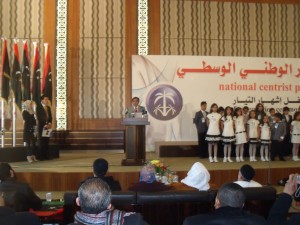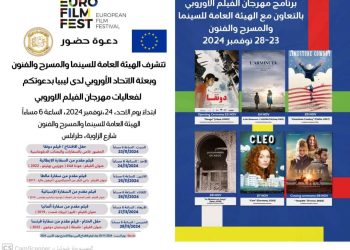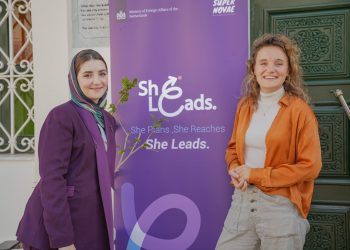Former oil minister Ali Tarhuni launched his National Centrist . . .[restrict]Party in Tripoli on Monday ahead of the June elections for the assembly that will draw up a new constitution.
During the meeting held at the Rixos hotel’s conference centre, Tahouni was interviewed by the Libya Herald’s managing editor, Sami Zaptia.
Last week former prime minister Mahmoud Jibril launched his National Coalition at the same venue.
Regarding the coalition formed by Mahmoud Jibril, Ali Tarhuni said: “We are part of that. Mahmoud Jabril and me — we coordinate very closely. We are hoping that this will be a grassroots movement, that’s the whole point. We are hoping to bring people that are not members of these parties. A lot of these parties tend to be intellectuals – which is great. We are going directly to the people and we are hoping that’s where the difference is.”
With regards to the fact that there still no laws for the formation of parties: “It makes no difference. We are going. We are forming. We are organizing people. And then when they have the law, we find out what it is and deal with it.
“The parties’ laws — what will they have in them? How to organize people maybe; the minimum numbers of people; how to finance. I hope they do that. I hope they have very clear financing mechanism. And not only that. My hope is that the law prohibits completely any outside financing to any political movement inside the country. Even democracies like the United States prohibit this type of interference. So that’s the only concern that I have.
“I hope they limit the role of money in politics. This is a country that does not have a lot of history in politics – it has none almost– people are confused they don’t know how to play the political game.
“I think money can play a constructive but also a very destructive role.”
Regarding the destruction of Muslim shrines, the desecration of the Christian cemetery in Benghazi as well as the alleged attempted destruction of the Gazelle fountain in Tripoli by some extremists:
“Moderation is the name of our movement. We are moderate. We are in the middle. I think any radicalization of Islam is something that we oppose. We strongly oppose that. We grew up in this country and we basically don’t practice these things that they do and I hope that they stop because Libya does not really condone that.”
To the question “How much support do these extremists have in Libya? Can you put a percentage on that?”, Tarhouni replied: “I don’t have a percentage. But I strongly believe that Libya as a whole is not radical. I believe strongly that the majority by far is somewhere in the middle. it’s the way we grew up it’s the way that our parents thought us. It’s the way that we practice Islam. We don’t have sects.
“Here is an example of how moderate Libya is. Libya is a Sunni country and my name is Ali and it is the most popular name in Libya and it is a Shiite name. I went to high school and I had no idea if I was a Shiite or a Sunni. I did not know and it was not an issue for us. We are indeed moderate and it is a rooted in Libya. I believe that they (the extremists) are not the majority in Libya.”
Tarhouni was asked to comment about the peaceful way that the 17February Revolution’s first anniversary celebrations took place and the local election at Misrata. What indicators did he think these sent.
“Anything good for Libya it makes me happy. I was worried about the celebrations. Some of these people have legitimate gripes. But I was happy it went peacefully. The election in Misrata was great. Most of the faces that were elected were moderate faces. So yes I am happy on both fronts ‘.
To the question whether he thought all city councils including Tripoli Local Council should hold elections, he replied:
“I strongly urge them. I think they need to do that as fast as possible. This is one way to stabilize the political process and get us prepared for the elections coming. And I don’t see any reason why not. I am baffled by why they resist the elections.”
Did he think the June election would occur on time.
“I hope that they do. I oppose strongly delaying the elections. There are pros and cons for having them in June or delaying them. But I think the negatives are much more for delaying them. There is a political vacuum and we don’t really want that to last.”
Asked if he though the 2013 elections were too far away, he replied: “I believe so.”
Regarding the possibility that some military figures like Abdallah Naker may enter the elections he said: “Politics and guns need to be separated. The NTC needs to be courageous about demilitarizing the country. The longer it takes it becomes institutionalized.”
Regarding the arrested Iranian TV journalists in Misrata, he attributed that to a weak government with week institutions. [/restrict]









